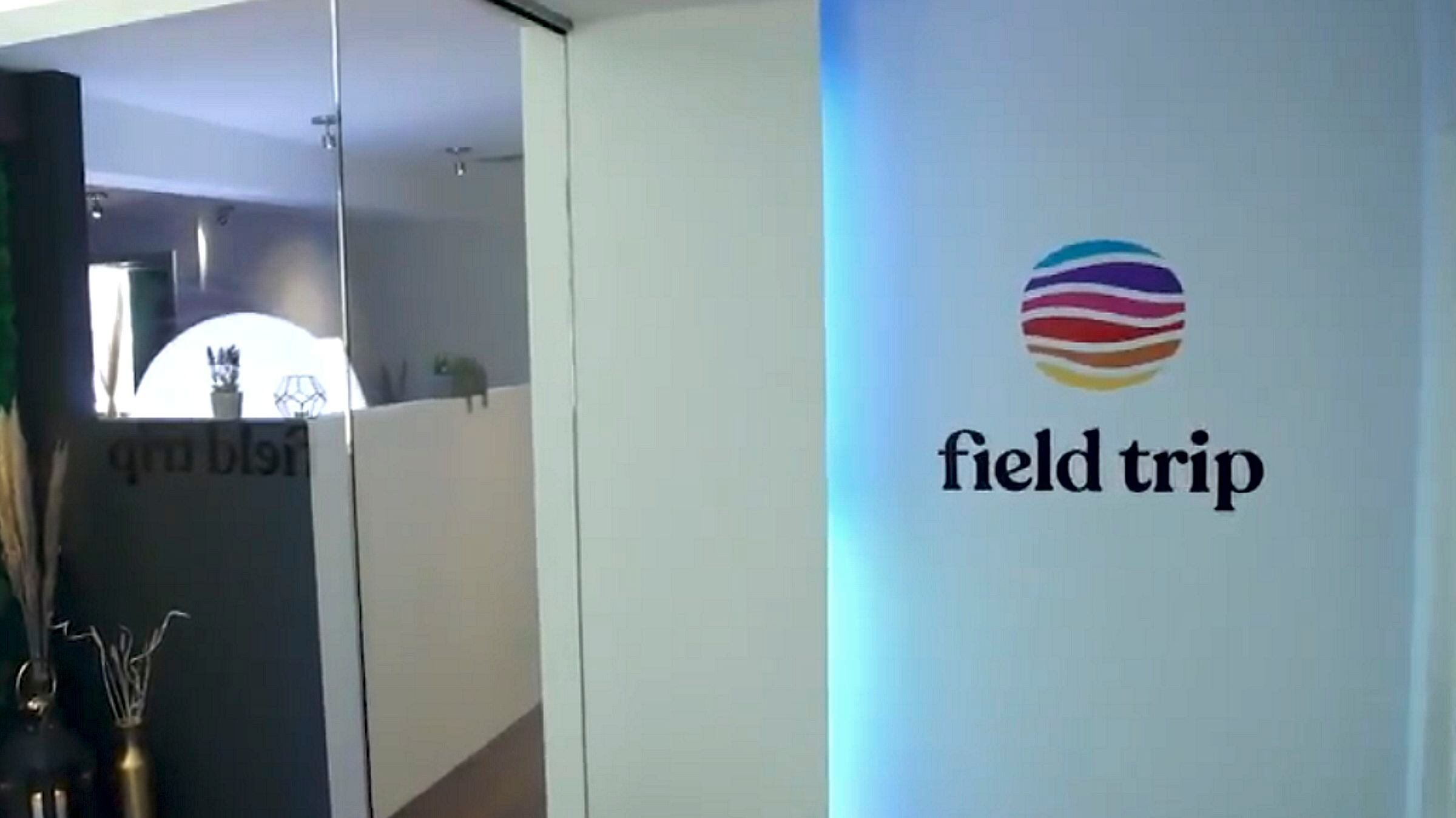Over on 25th St. and Lexington in midtown Manhattan, there's a clinic offering more than just therapy — and it's accepting new patients.
At Field Trip Health's newest location in New York City, individuals battling treatment-resistant depression can seek relief through a relatively new type of treatment: ketamine-assisted therapy.
Ketamine is a dissociative drug approved by the Food and Drug Administration for use as an anesthetic. But off-label applications like for treatment-resistant depression are legal — and common. The FDA also approved in 2019 a nasal spray containing esketamine, a component of ketamine, for treatment-resistant depression.
Clinics providing ketamine for off-label purposes are popping up like daisies in cities across the U.S. — a quick Google search reveals a handful of private clinics offering the service just in lower Manhattan, alone.
"We are having a psychedelic renaissance. We are in it — we've been in it for a while. Why? it goes back to … our disappointment with our current standard of care," said Dr. Benjamin Medrano, Medical Director at Field Trip Health.
Of course, not just anyone qualifies for treatment. At Field Trip, referrals are not required, but patients have to undergo several rounds of screening, beginning with Medrano.
"I feel somewhat like a gatekeeper to this treatment out of respect for what we are doing, but also for the safety of the patient," Medrano said.
In addition to taking down a patient's medical history, he has to prove that a patient has undergone multiple medication trials or other interventions, at least two different antidepressants for example, without going into remission. Unfortunately, Medrano said, it's not uncommon.
"We spend so much time in psychiatry getting accustomed to the disappointment of a lot of the treatments out there," he said.
A full course of treatment at Field Trip involves an initial consultation and preparation session, along with multiple rounds of ketamine therapy, followed by post-dosing therapy. Treatment can total up to 17 hours across as many as 14 visits, and costs around $4,700 at Field Trip. But existing research shows that ketamine can measurably reduce depression symptoms after just a single dose.
According to a 2006 study, 71 percent of subjects with treatment-resistant depression saw a reduction in symptoms, and 29 percent of subjects achieved remission of symptoms. A week later, 35 percent of participants in the study still had reduced symptoms. About 70 percent of treatment-resistant depression patients in a 2016 study saw reduced symptoms after two weeks of twice-weekly treatments. About 38 percent went into remission. Longer-term, however, results are less clear.
At Field Trip, patients also undergo an hour of therapy after their infusion, which is key.
"Our hope is with the corresponding therapy that [patients] can have a lasting improvement in mood, beyond what they see in the literature with ketamine alone," Medrano said.
With so many ketamine clinics around, it can be hard to stand out. But Matt Emmer, director of operations and business development at Field Trip, said the company's attention to set and setting — or patient intention and treatment environment — sets it apart from the competition.
The clinic truly is a vision of millennial style-meets New Age decor. It's light and airy with plush seating. Orchids dot the rafters, and there's even a moss wall. Patients can rest in a very futuristic-looking Somadome, a meditation pod that uses light and sound to help calm them before treatment sessions. They are also invited to seal an intention for their treatment by placing a painted handprint on a wall. Ketamine infusions and subsequent therapy takes place in a zero gravity chair in rooms with themes like clouds and jungle that have soundtracks to match. After their sessions, they can take a few private moments in the integration room — a dim lounge, covered in cushions — where they can sort through their thoughts before heading back out into the city.
These clinics were designed with ketamine in mind, but Field Trip hopes they can also one day be used for other types of psychedelic-assisted therapies — like psilocybin, which the FDA granted breakthrough therapy status — as they become legal.
"We are starting with ketamine; it's the psychedelic that is legally available for us. But we are looking at the trials around MDMA and psilocybin very closely," Emmer said. "Really what we envision in the future at these psychedelic centers would be an opportunity for patients to come in, [for] there to be a whole menu of different molecules that might be most suitable depending on the intensity, the duration, or the specific need of our clients."
Field Trip's first ketamine clinic opened in Toronto in March. There's another opening soon in Los Angeles. Within the next three to four years, the company aspires to have 75 treatment centers across the U.S.



